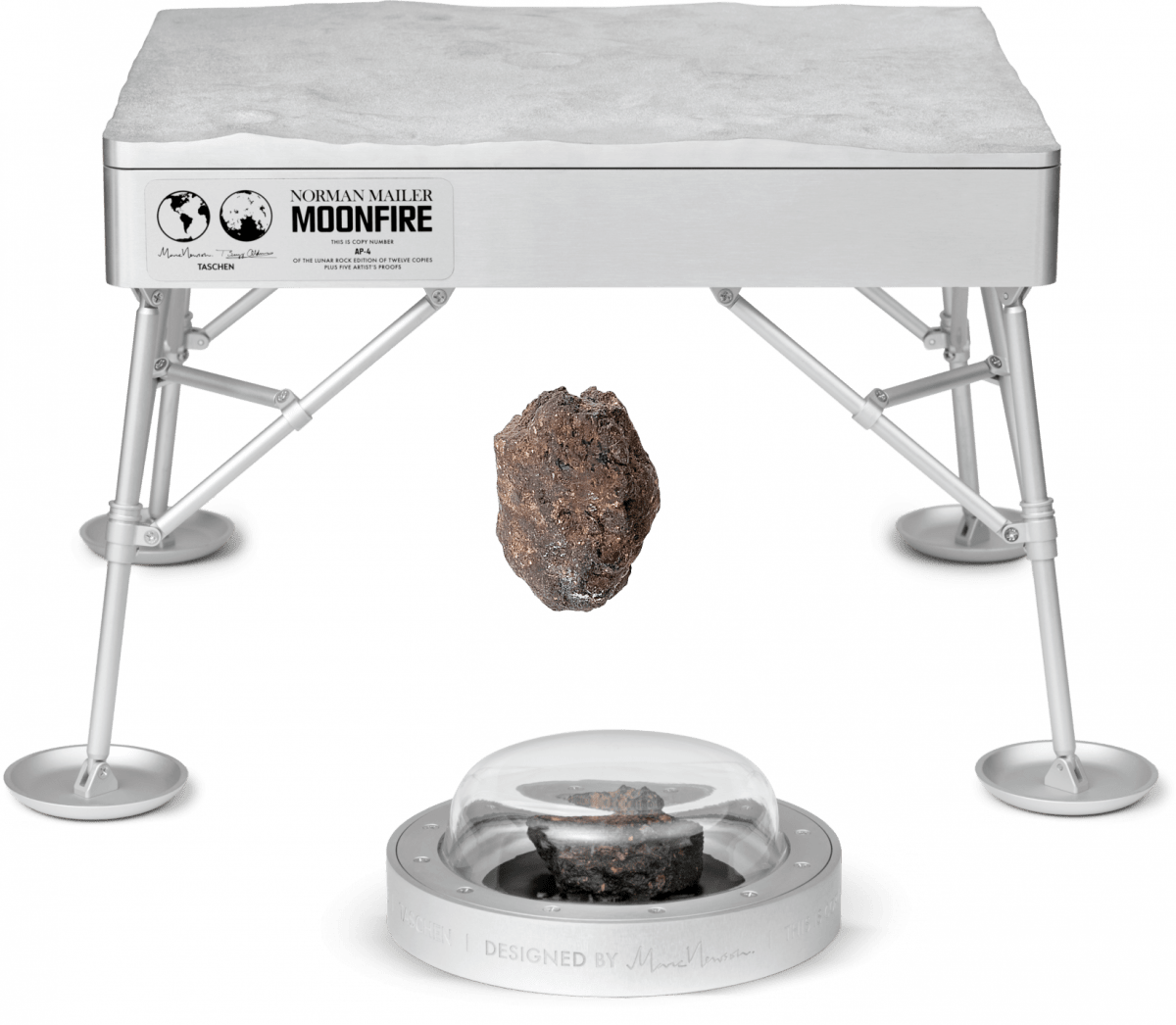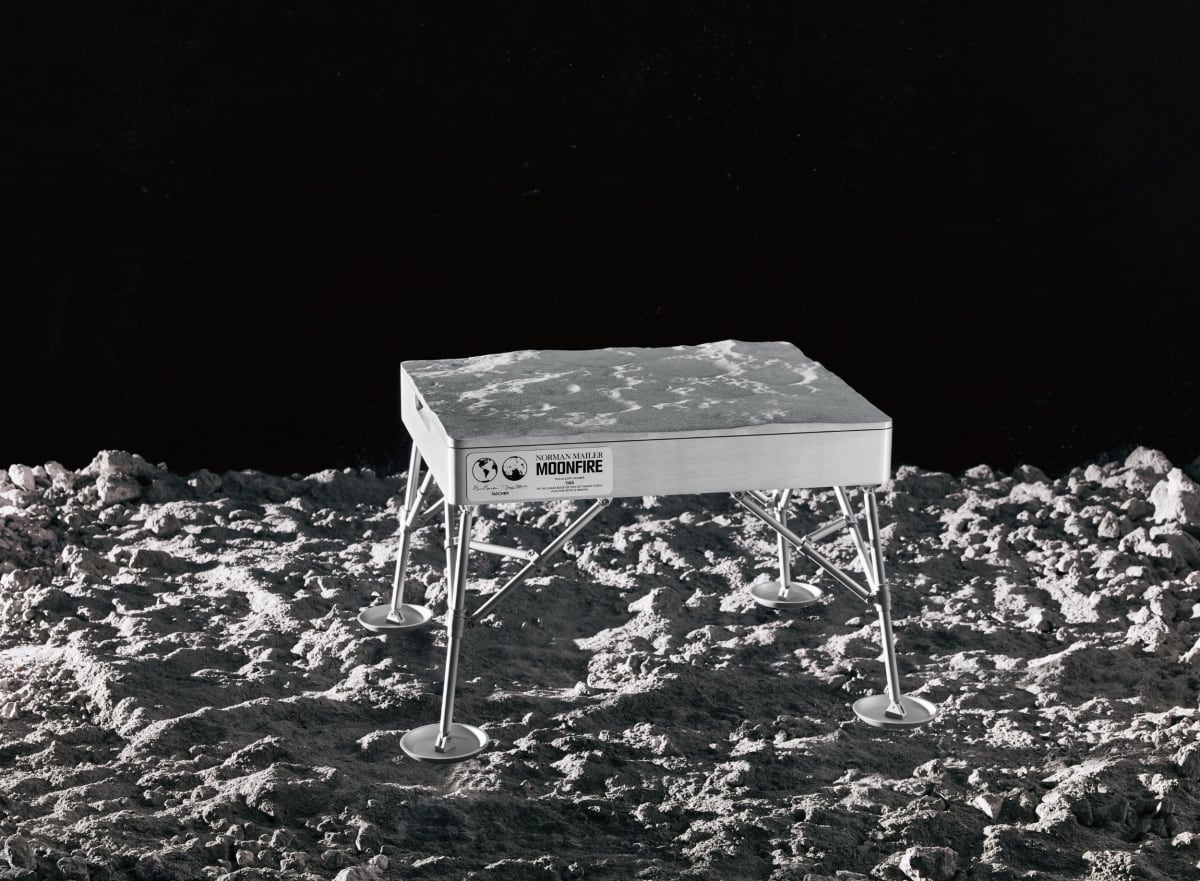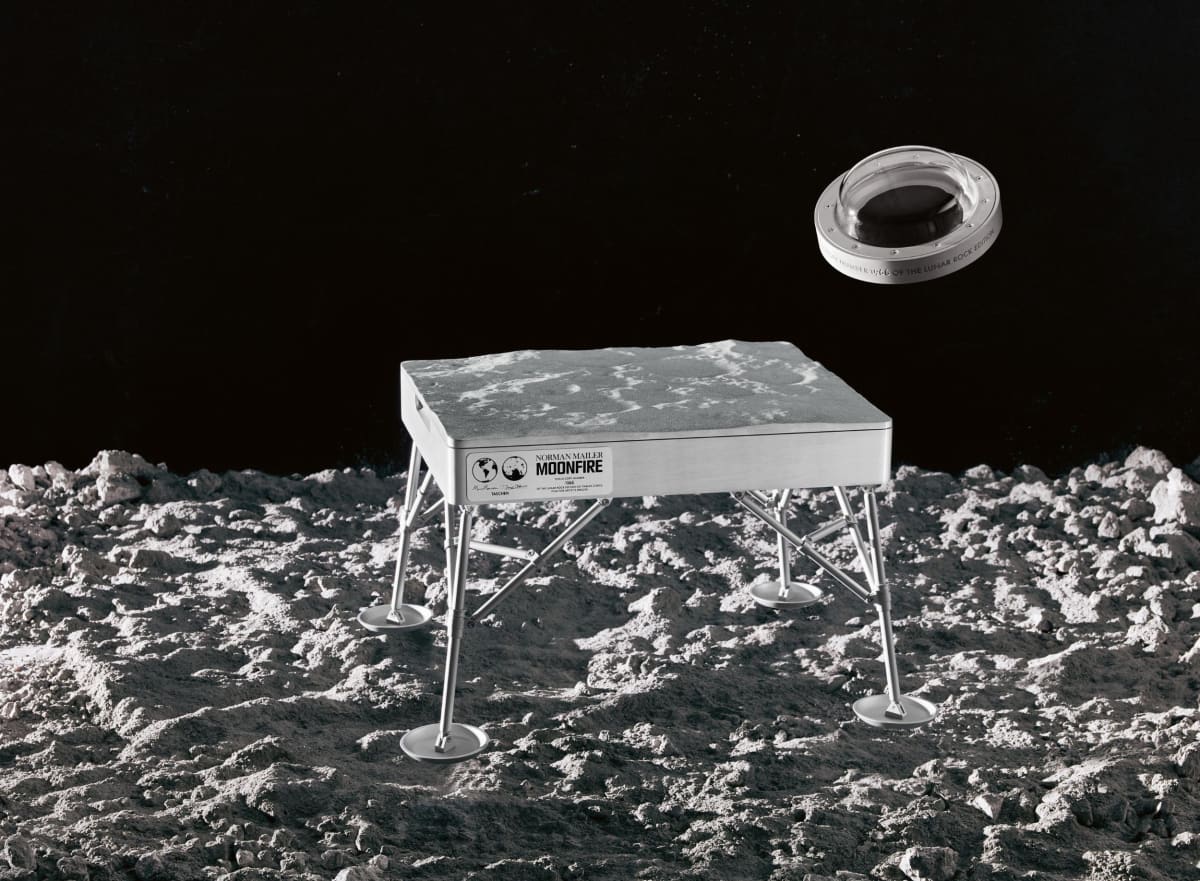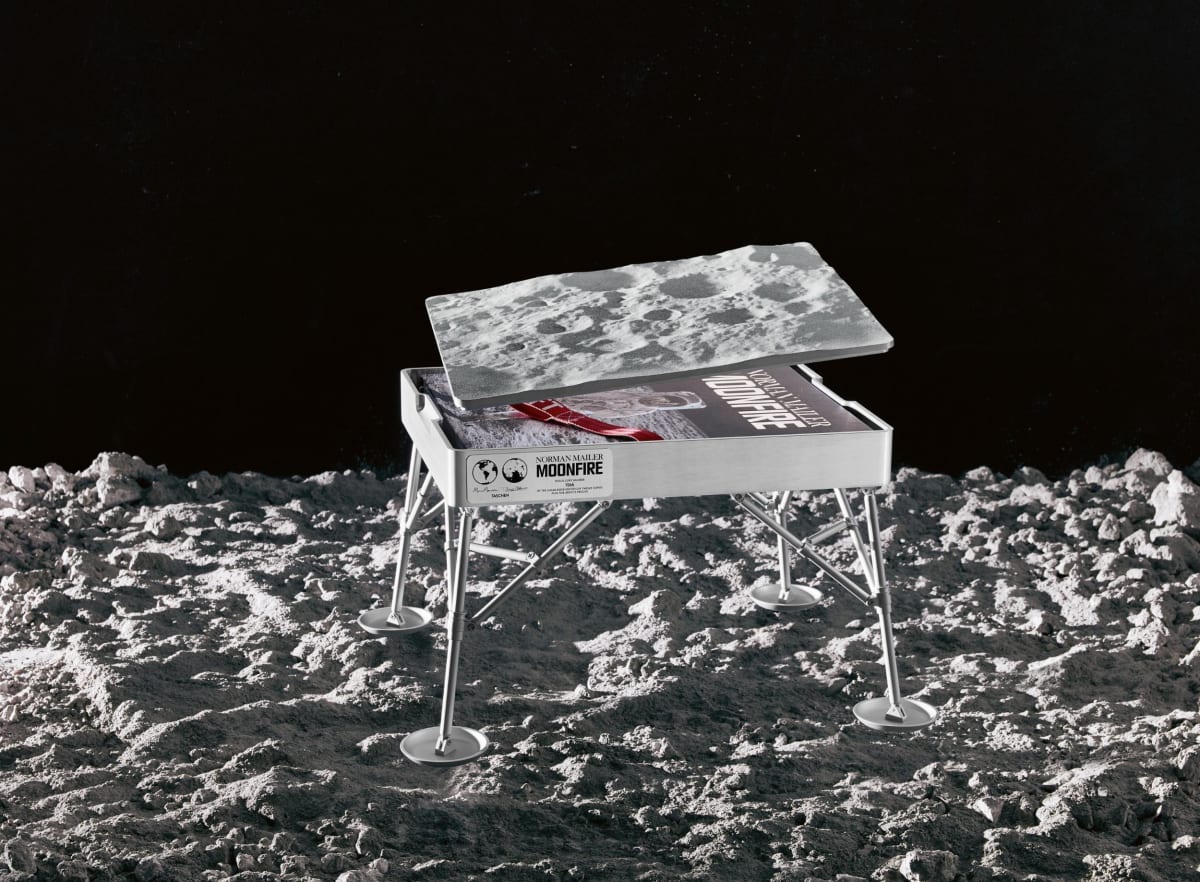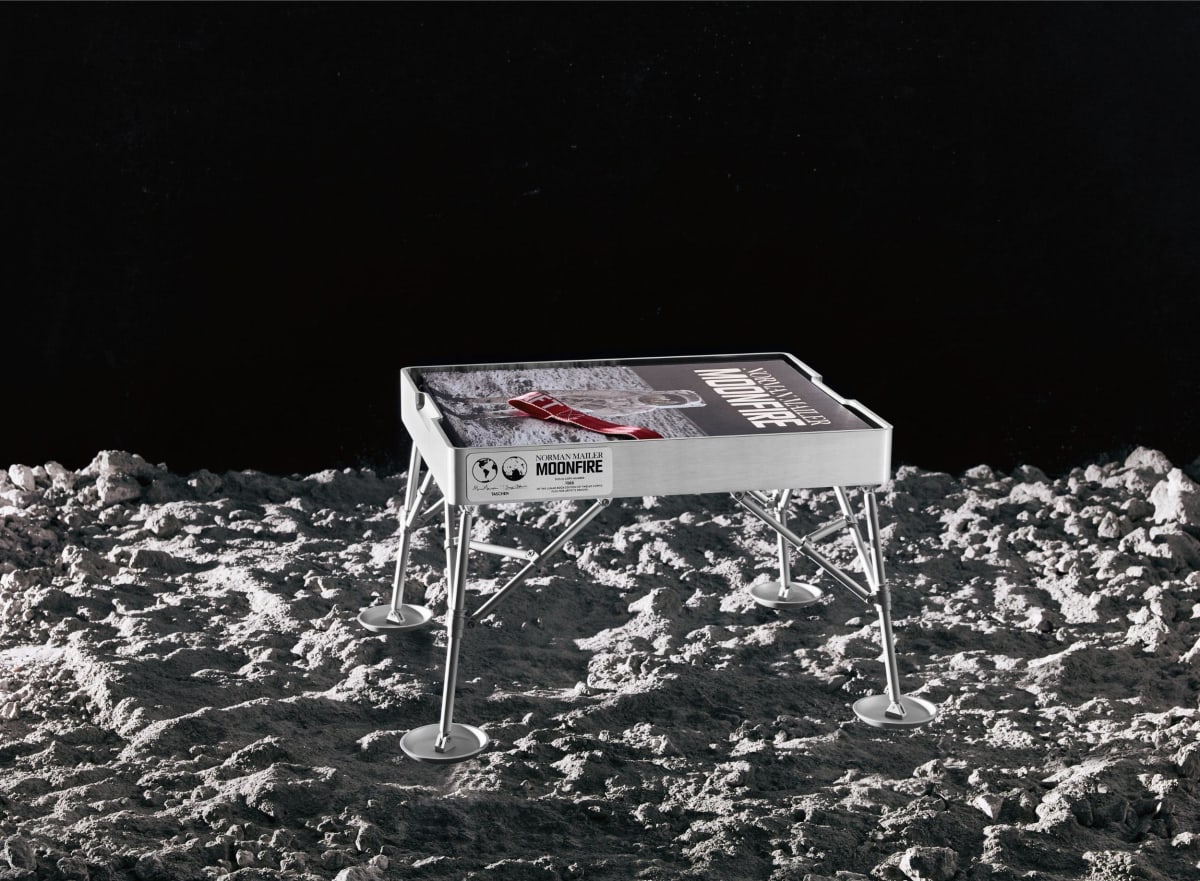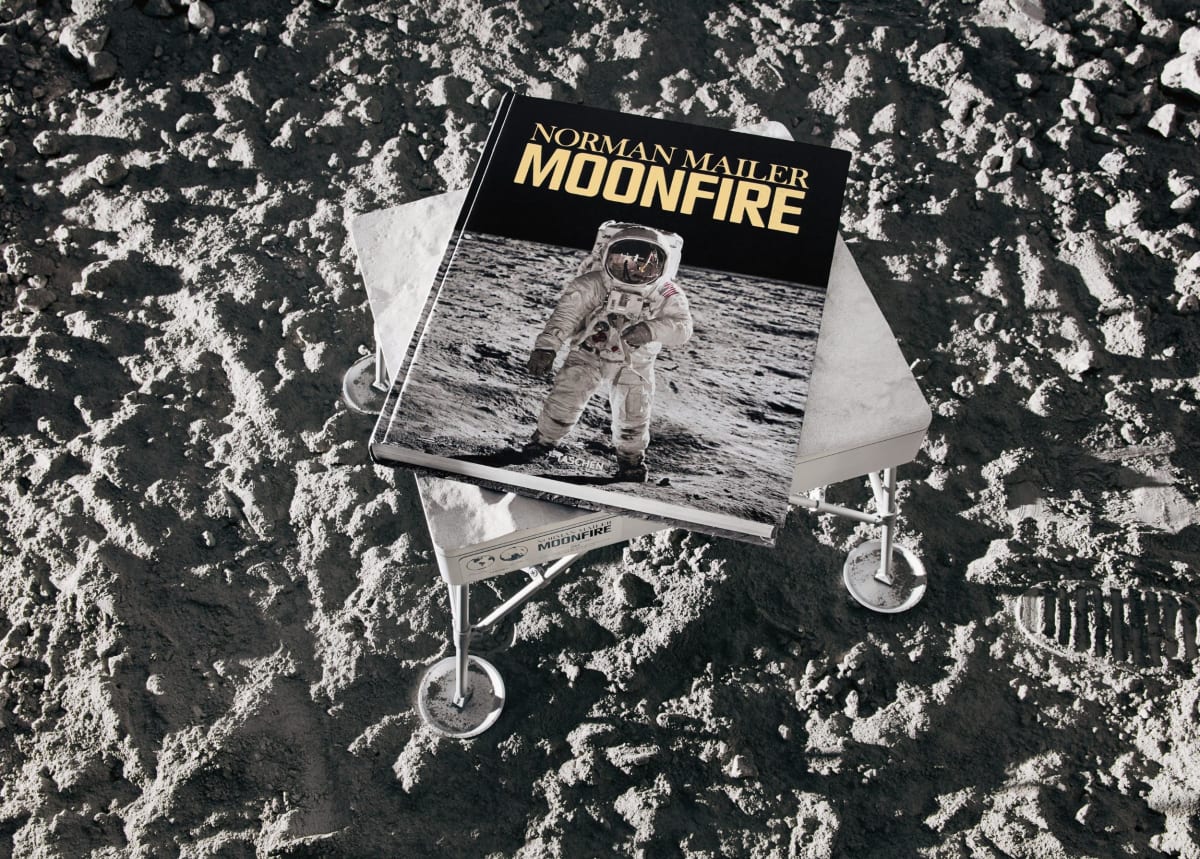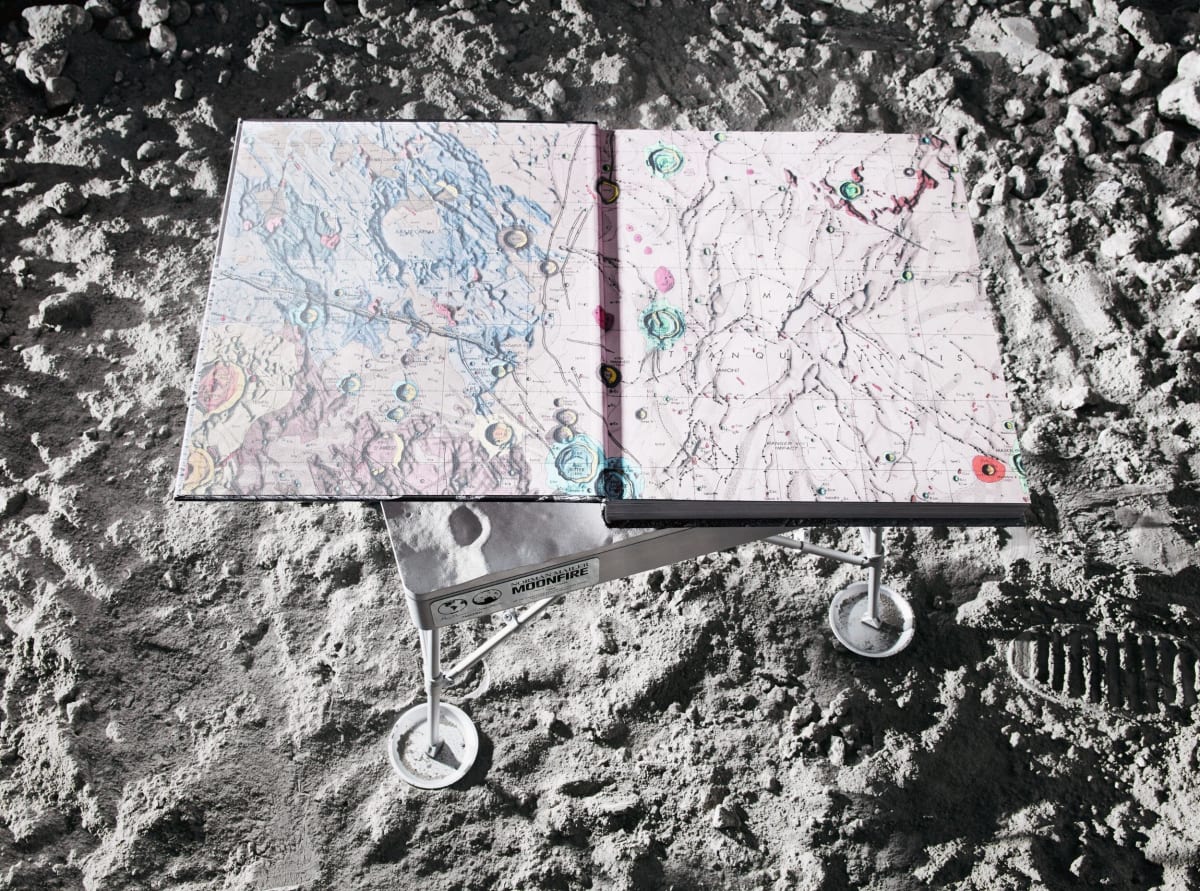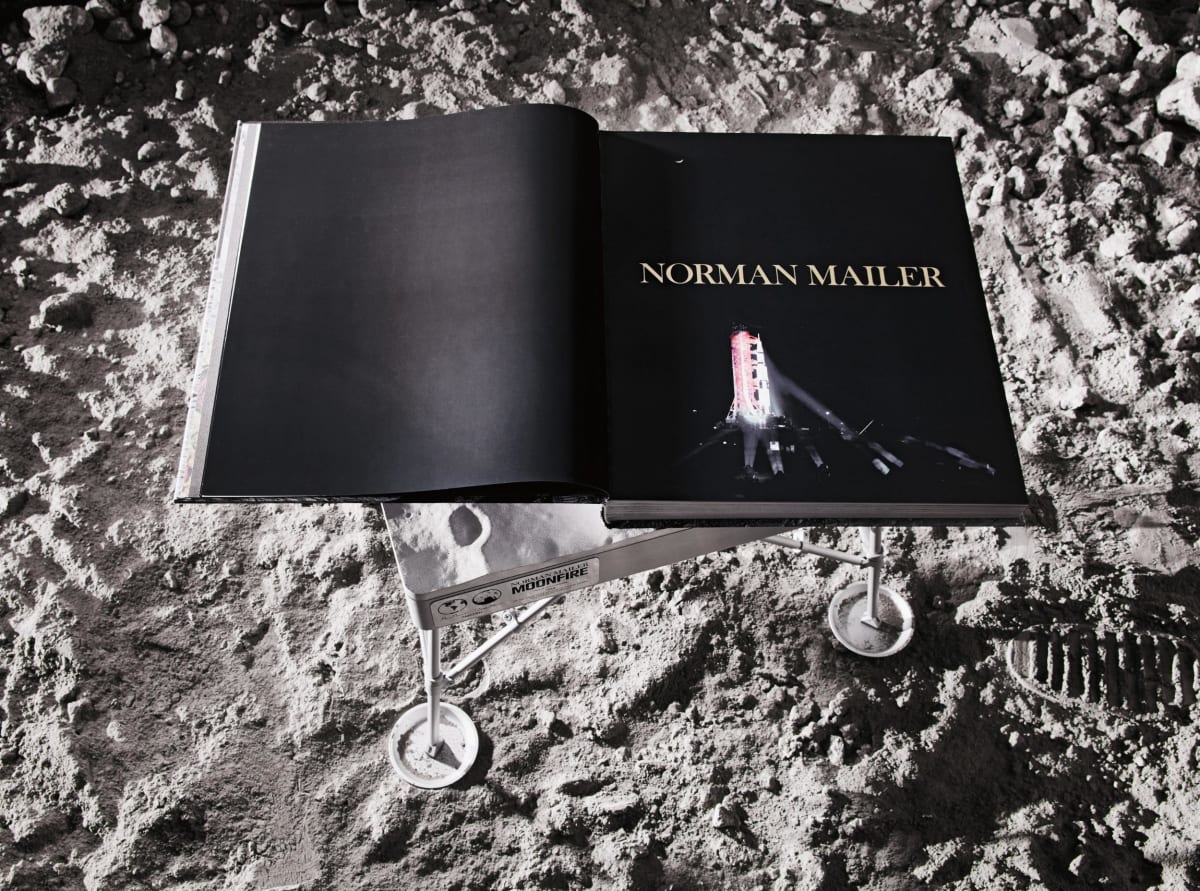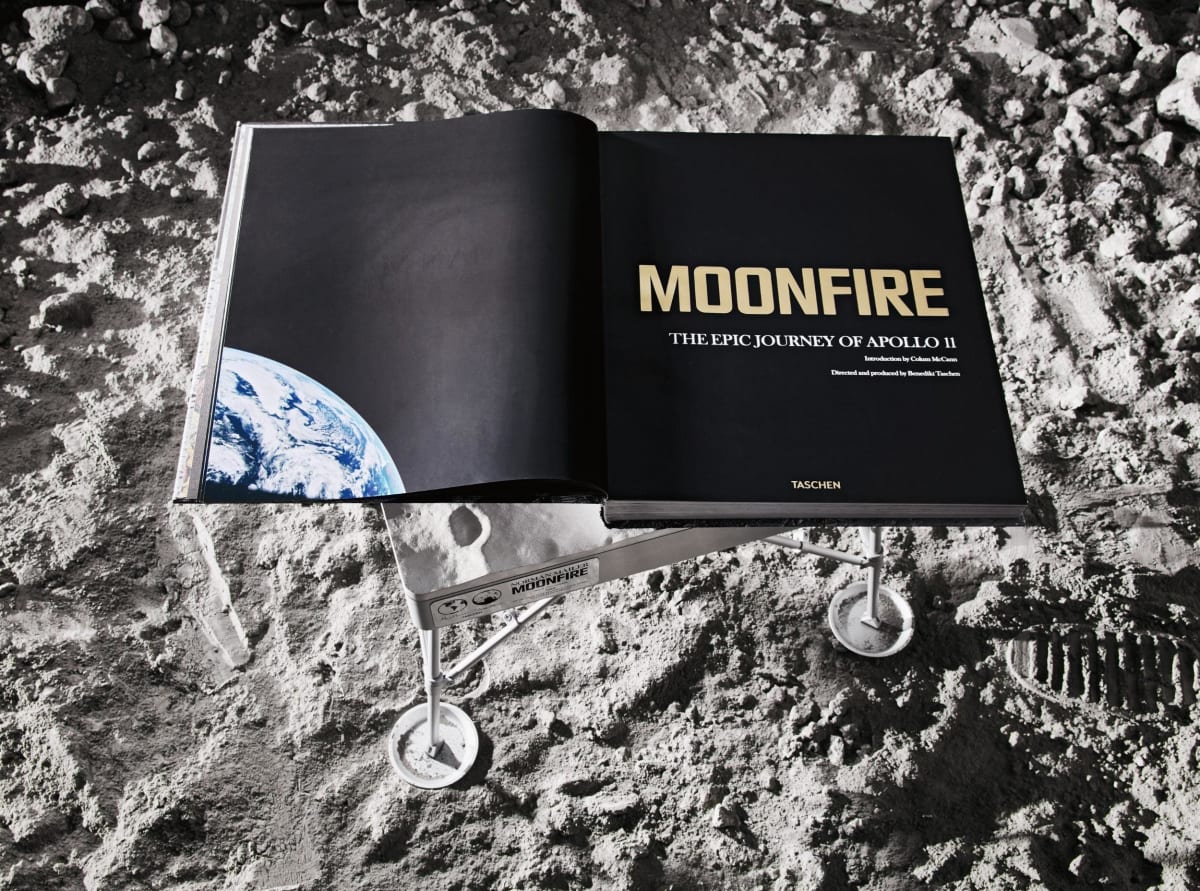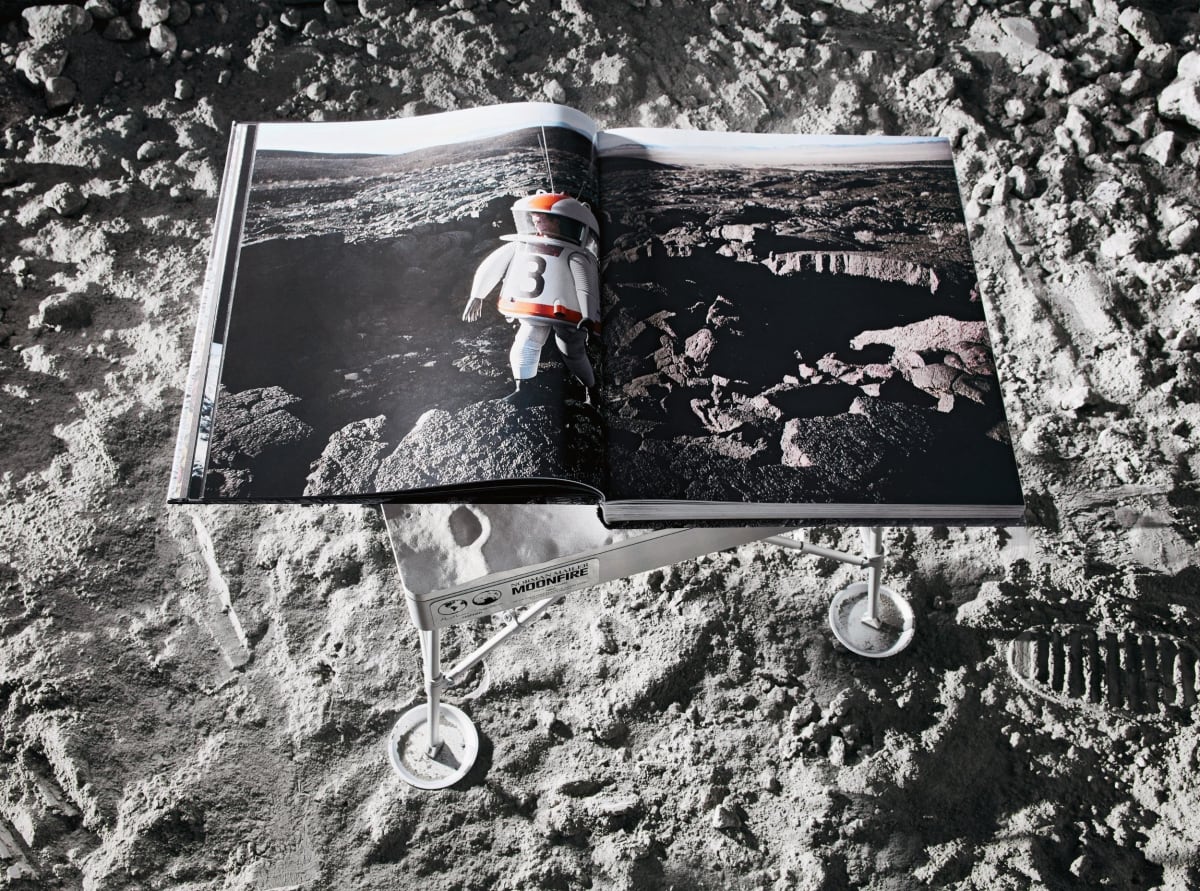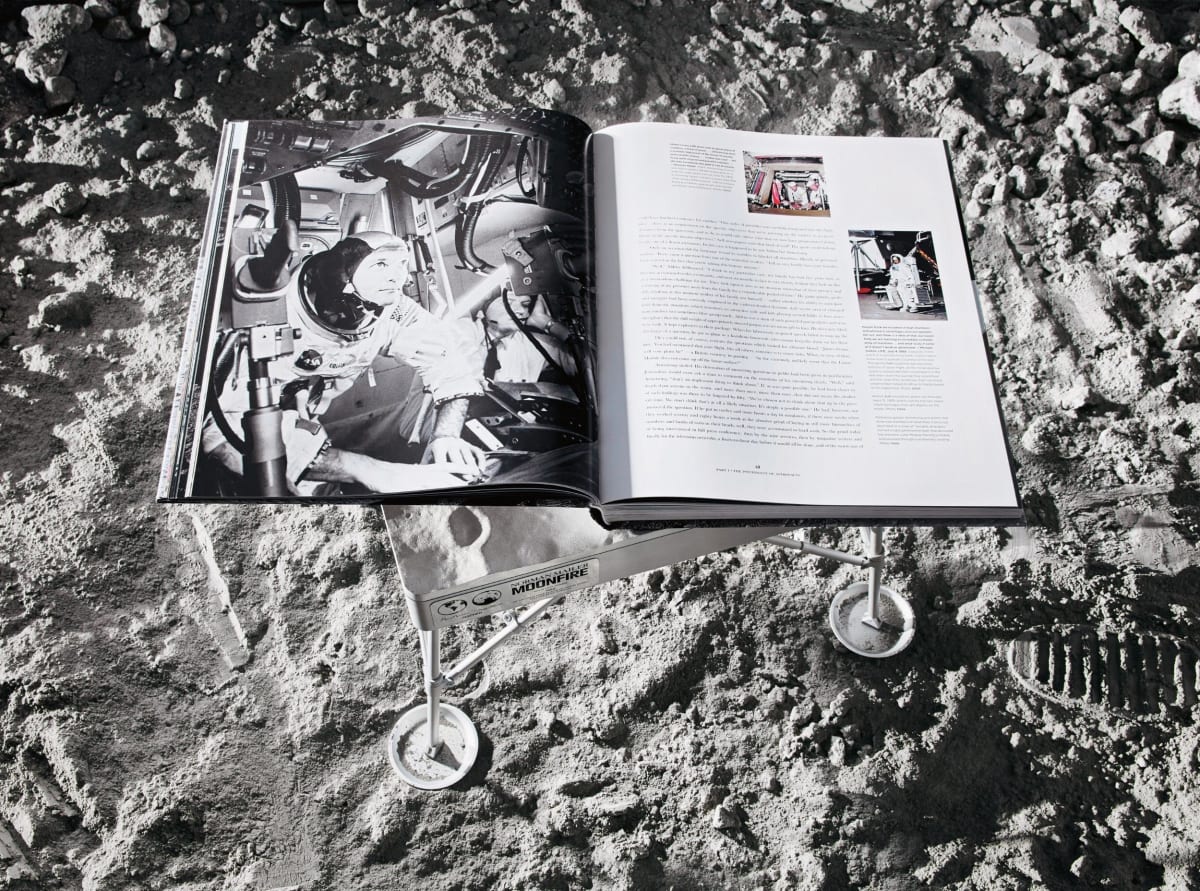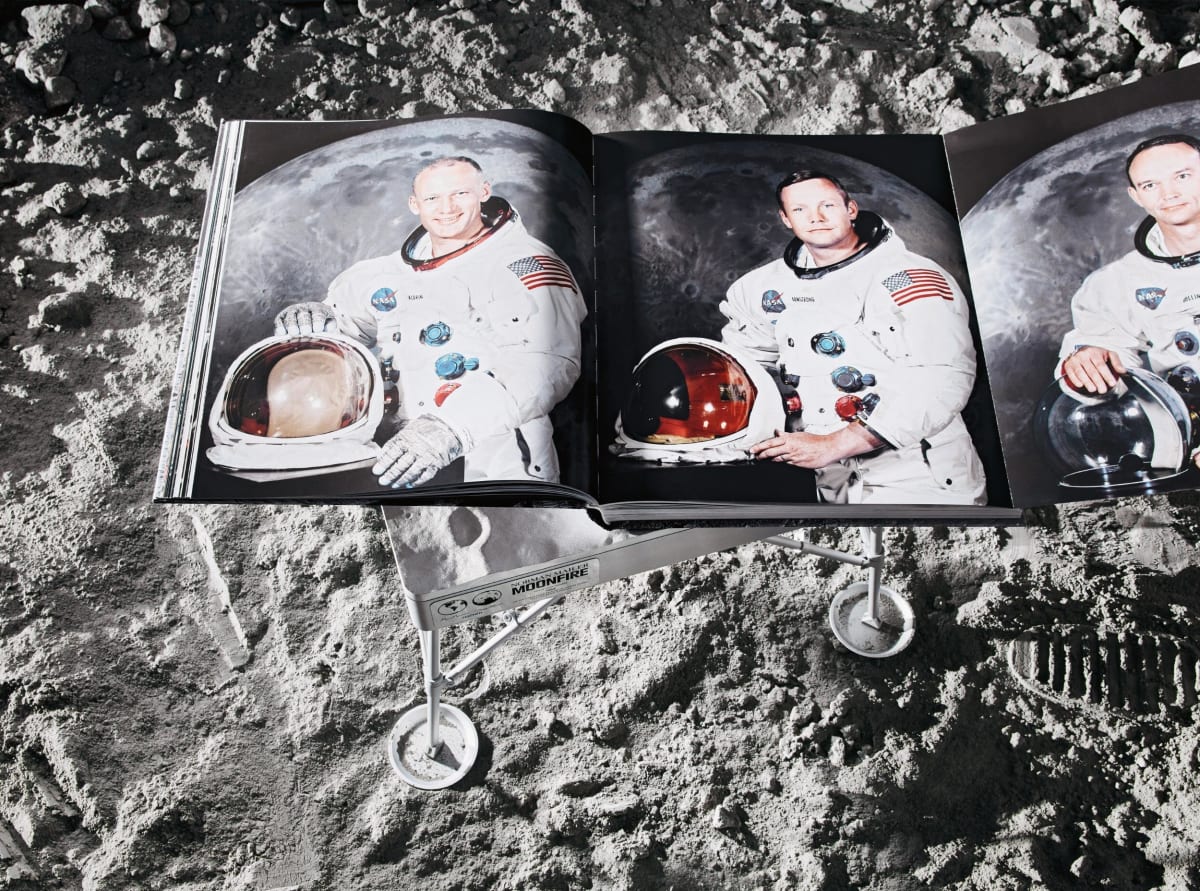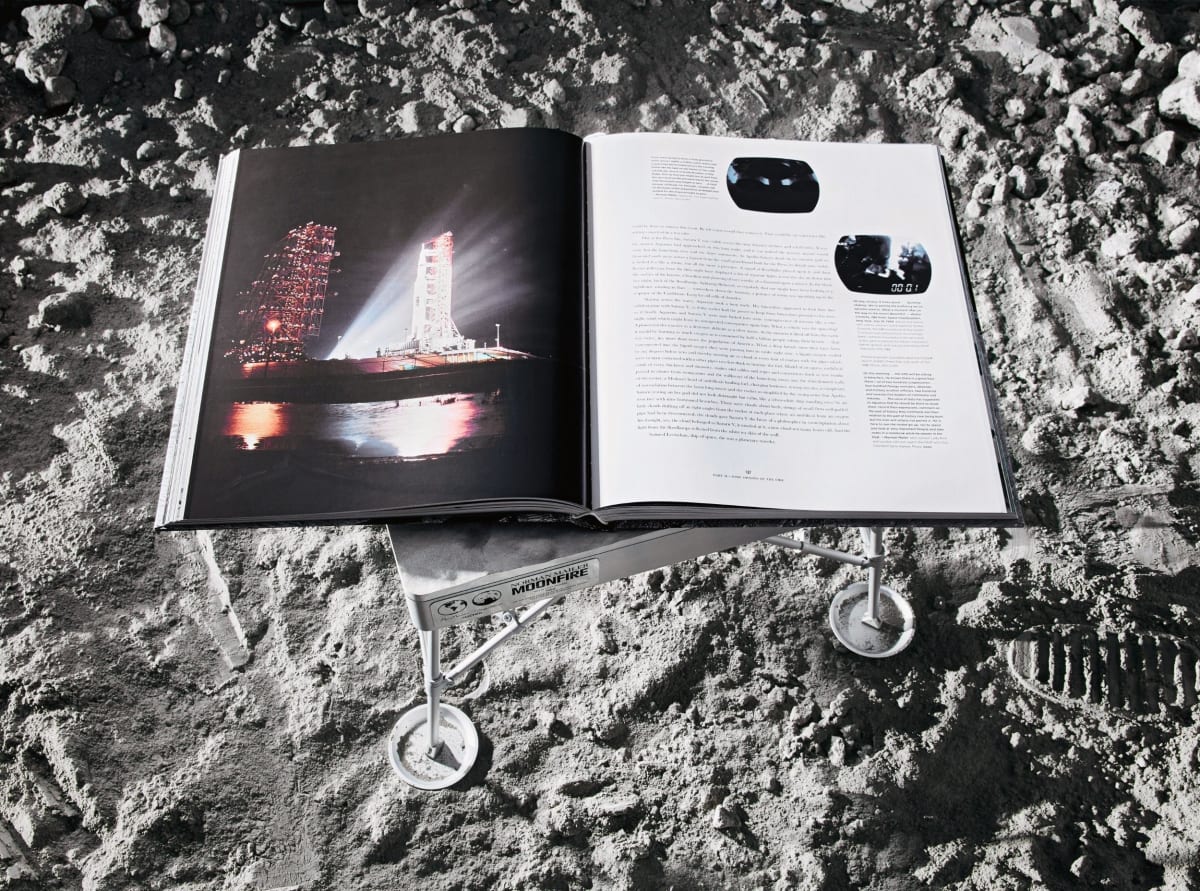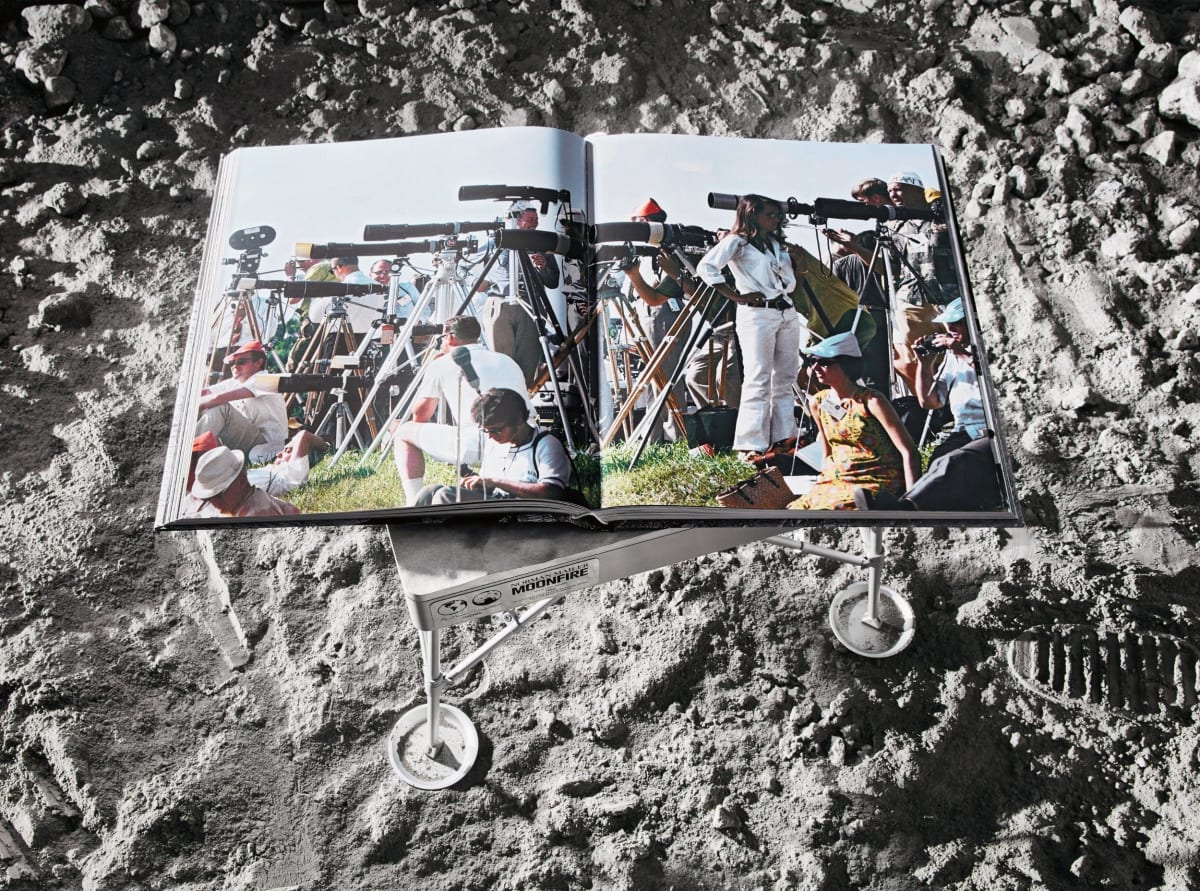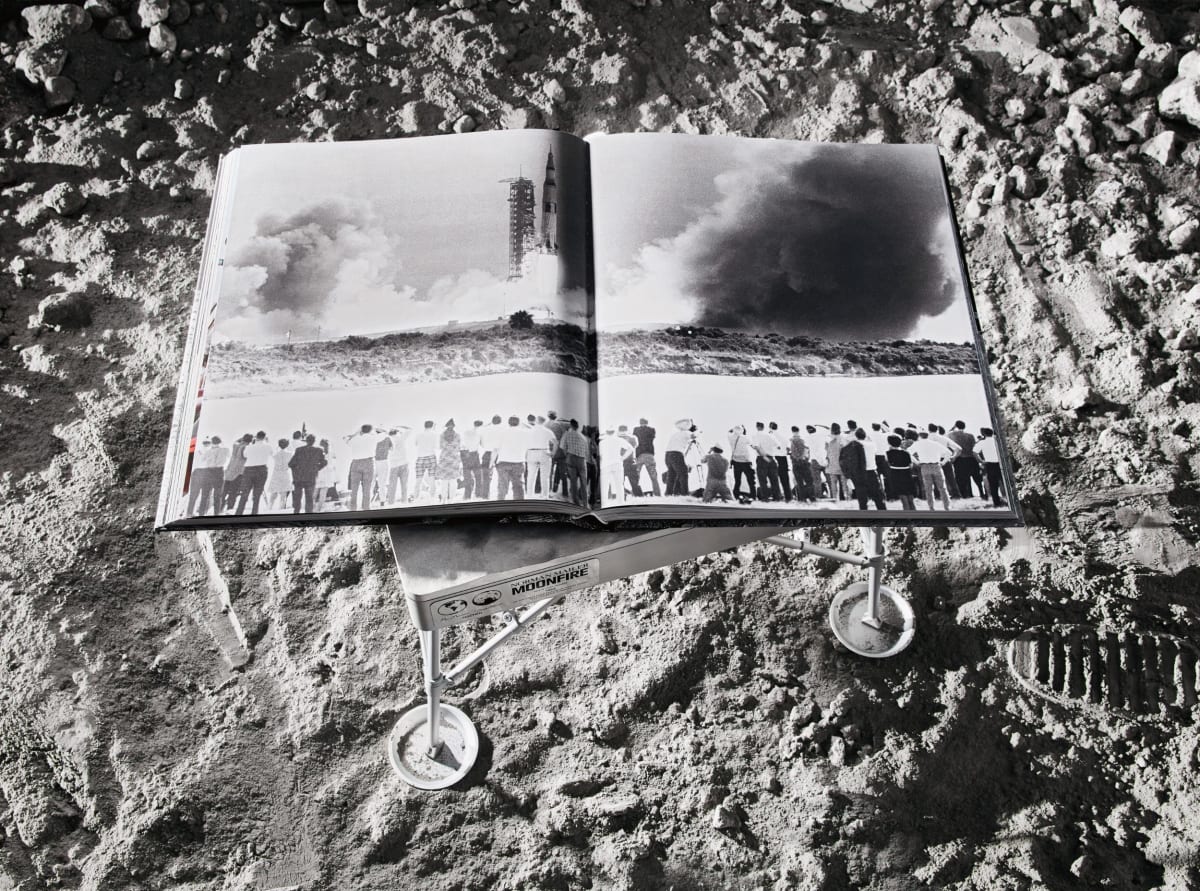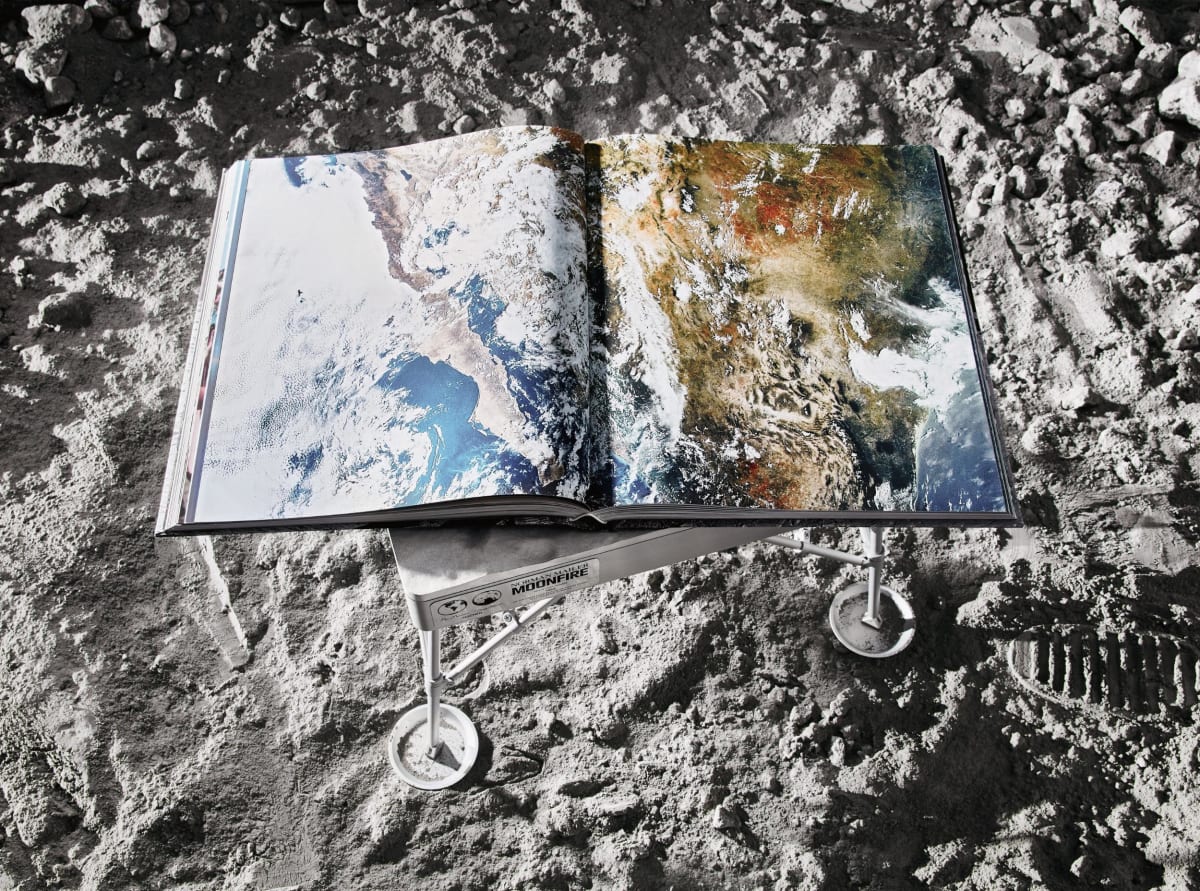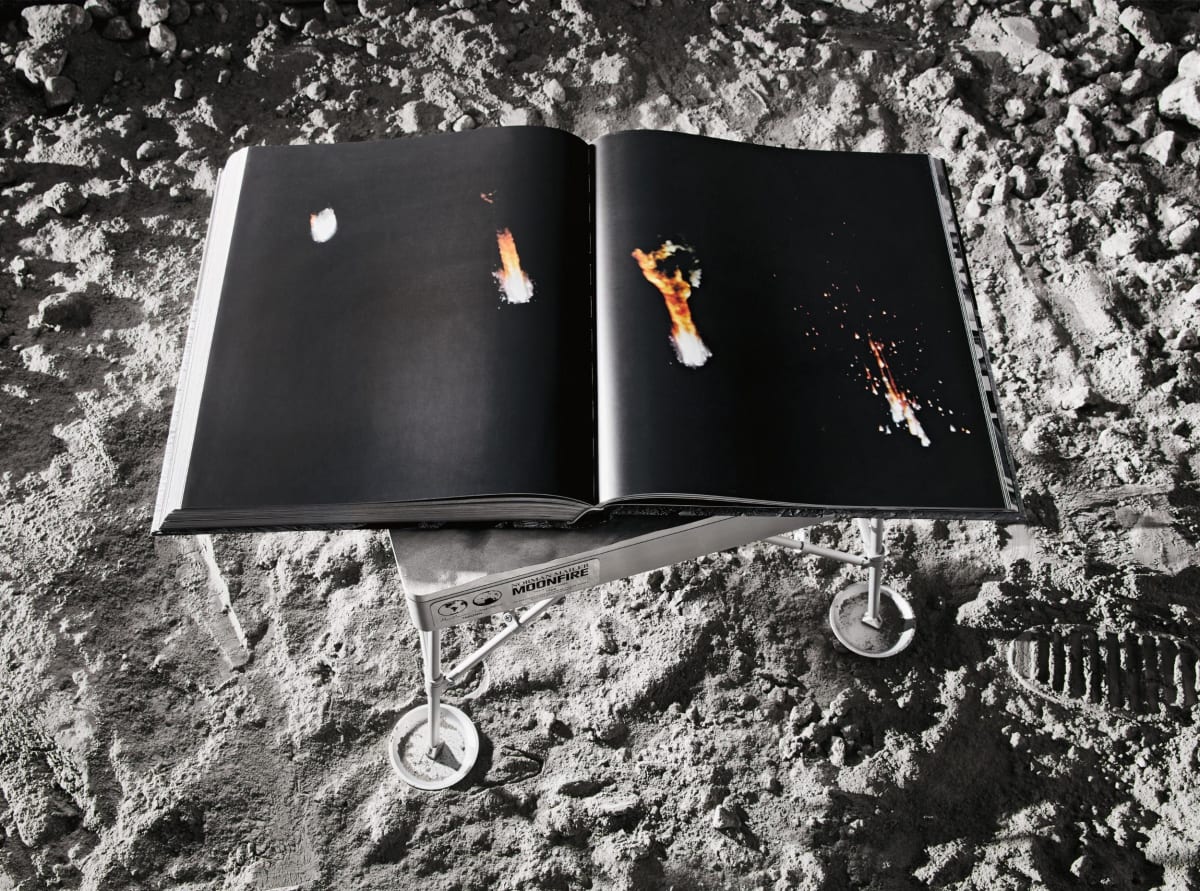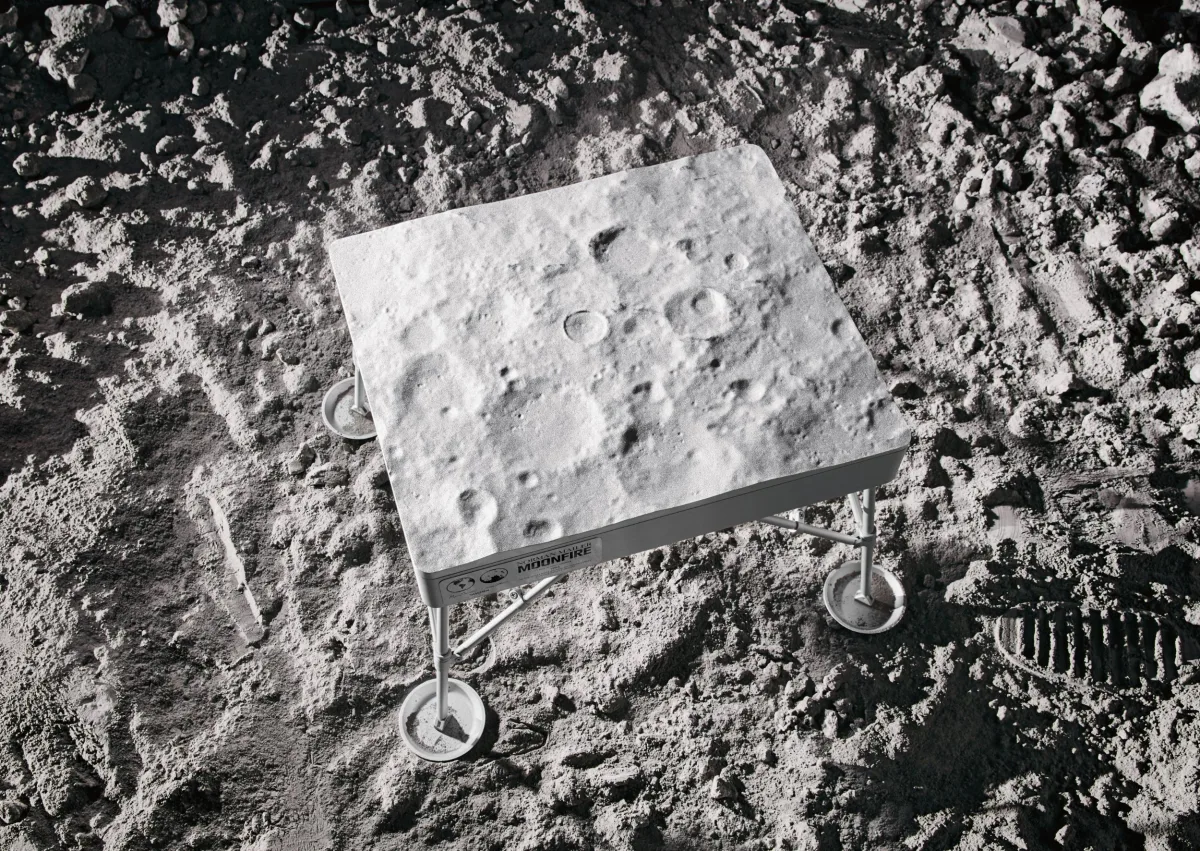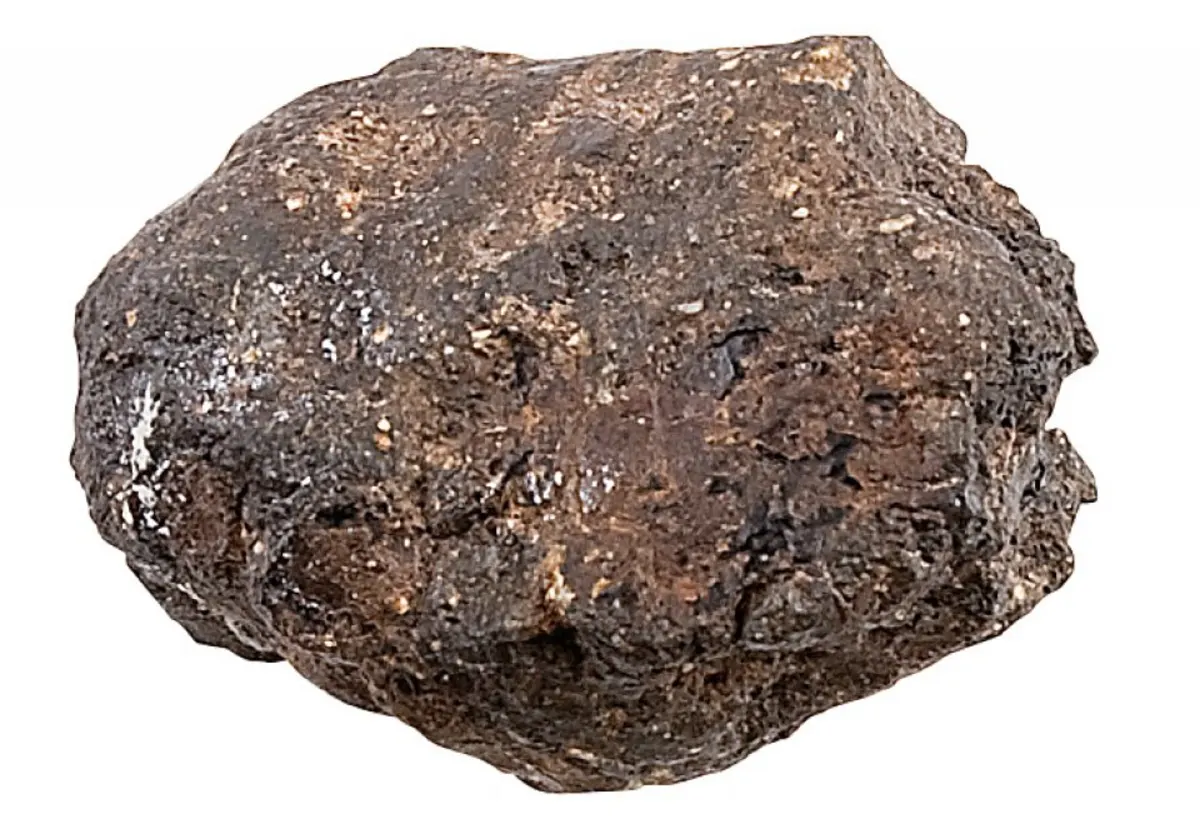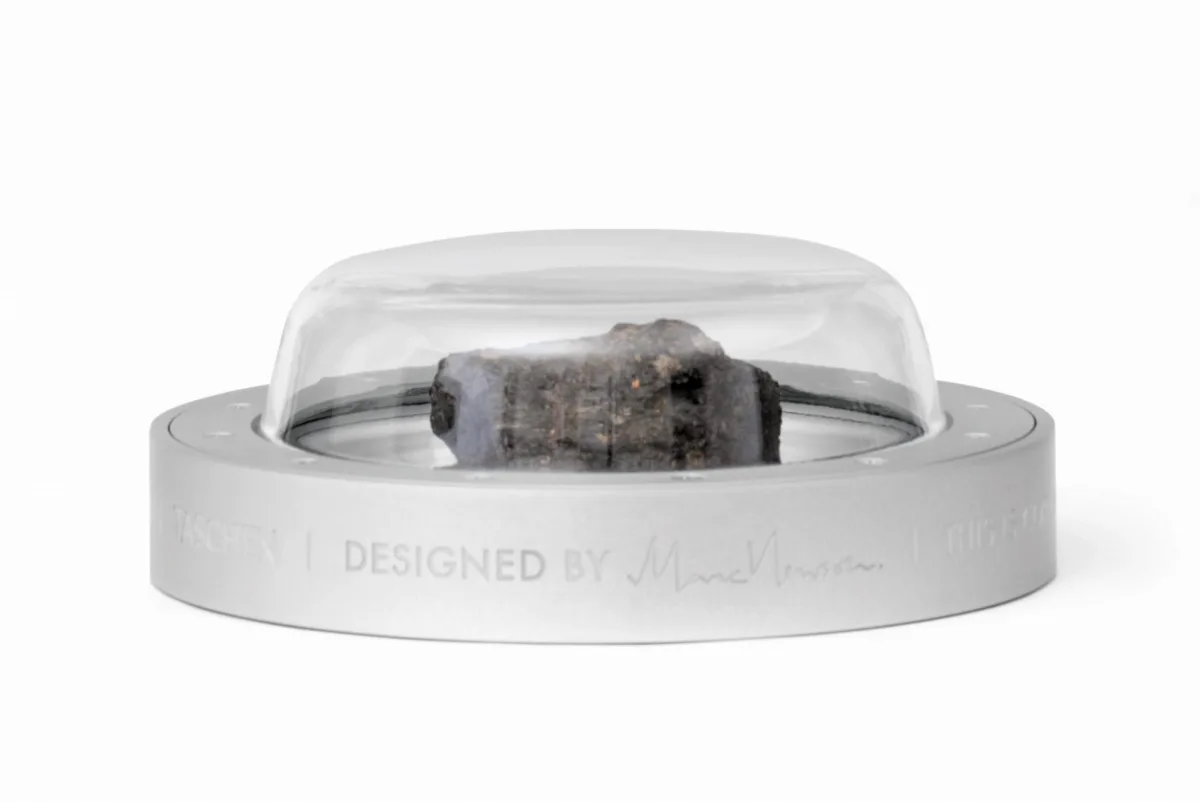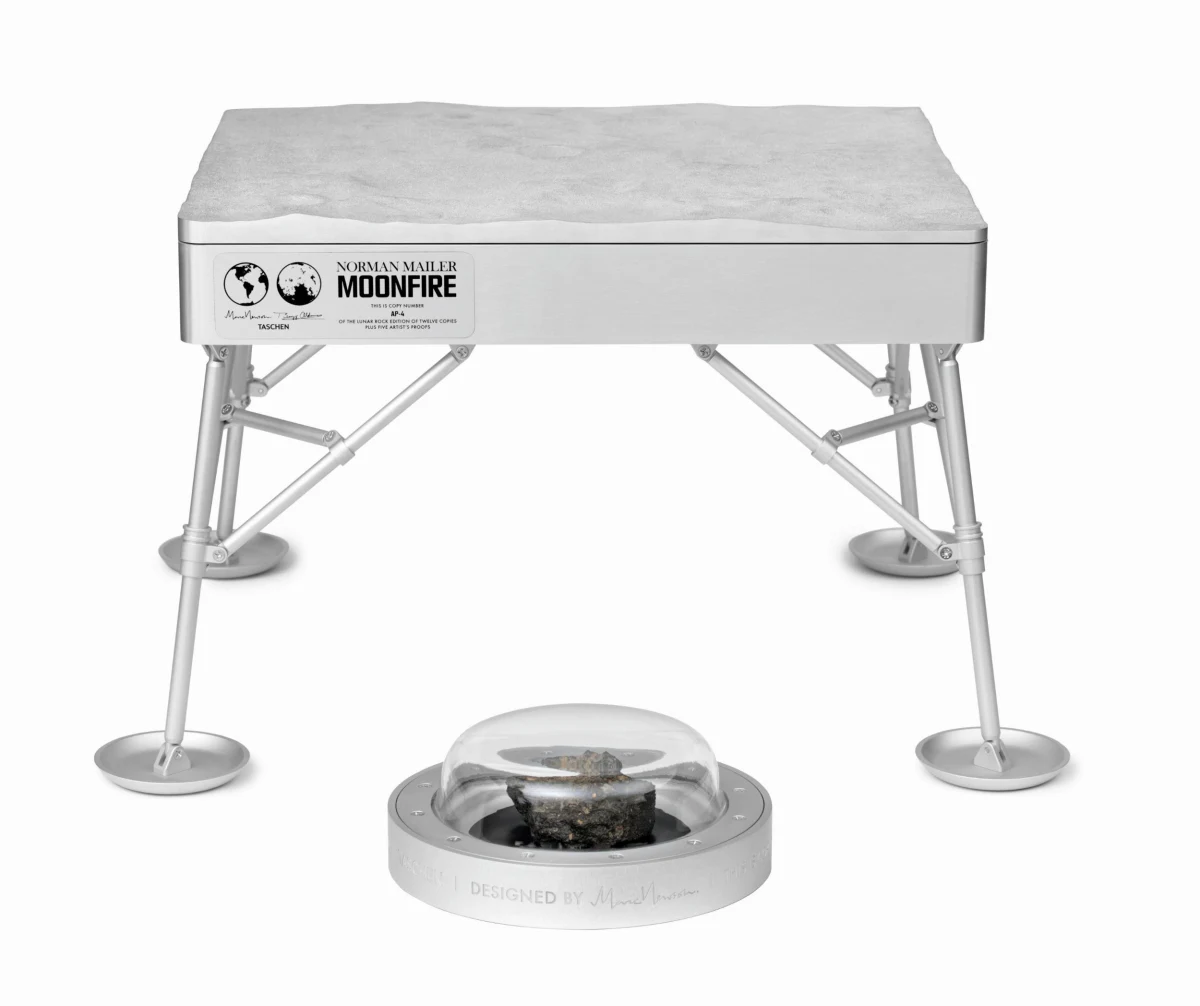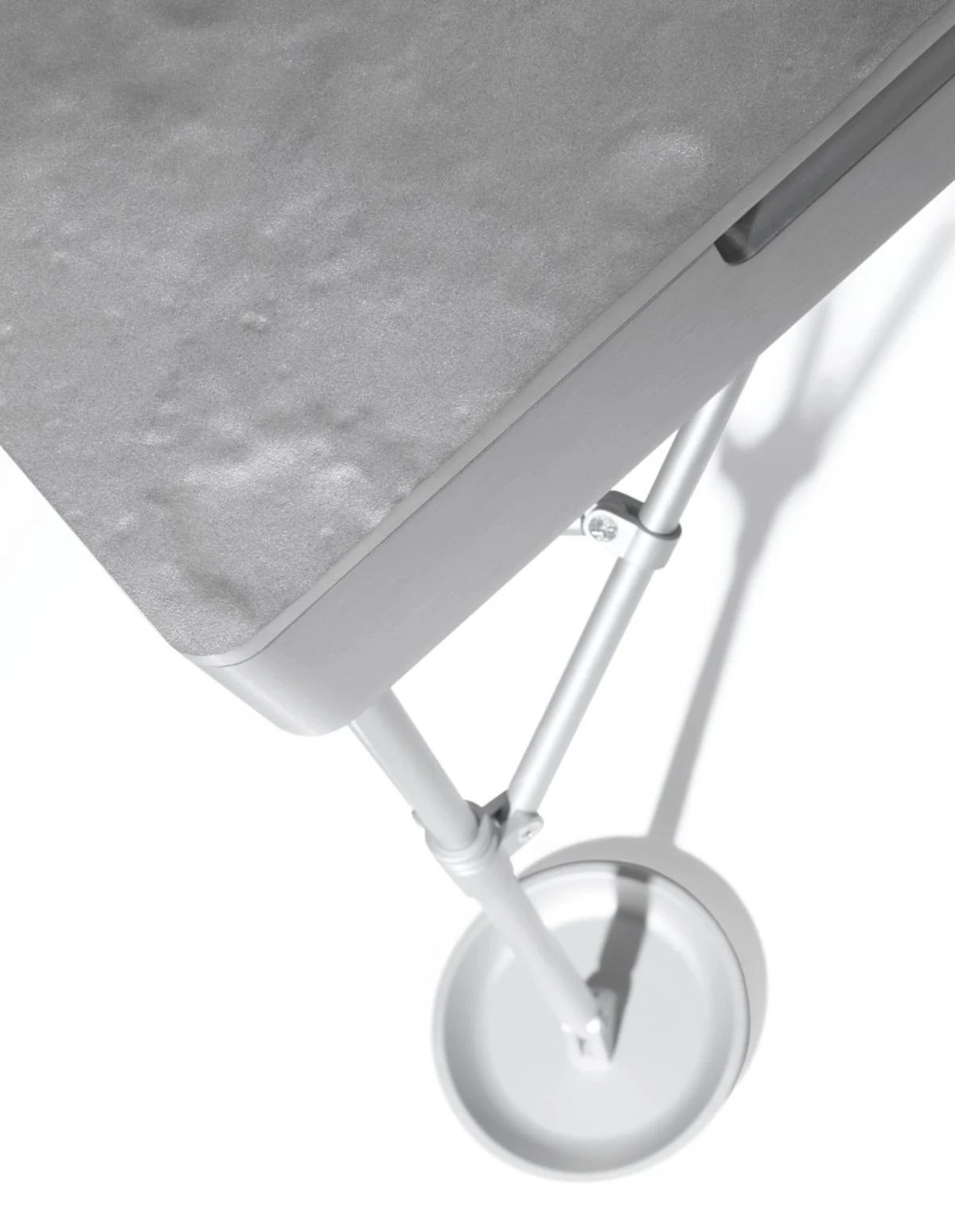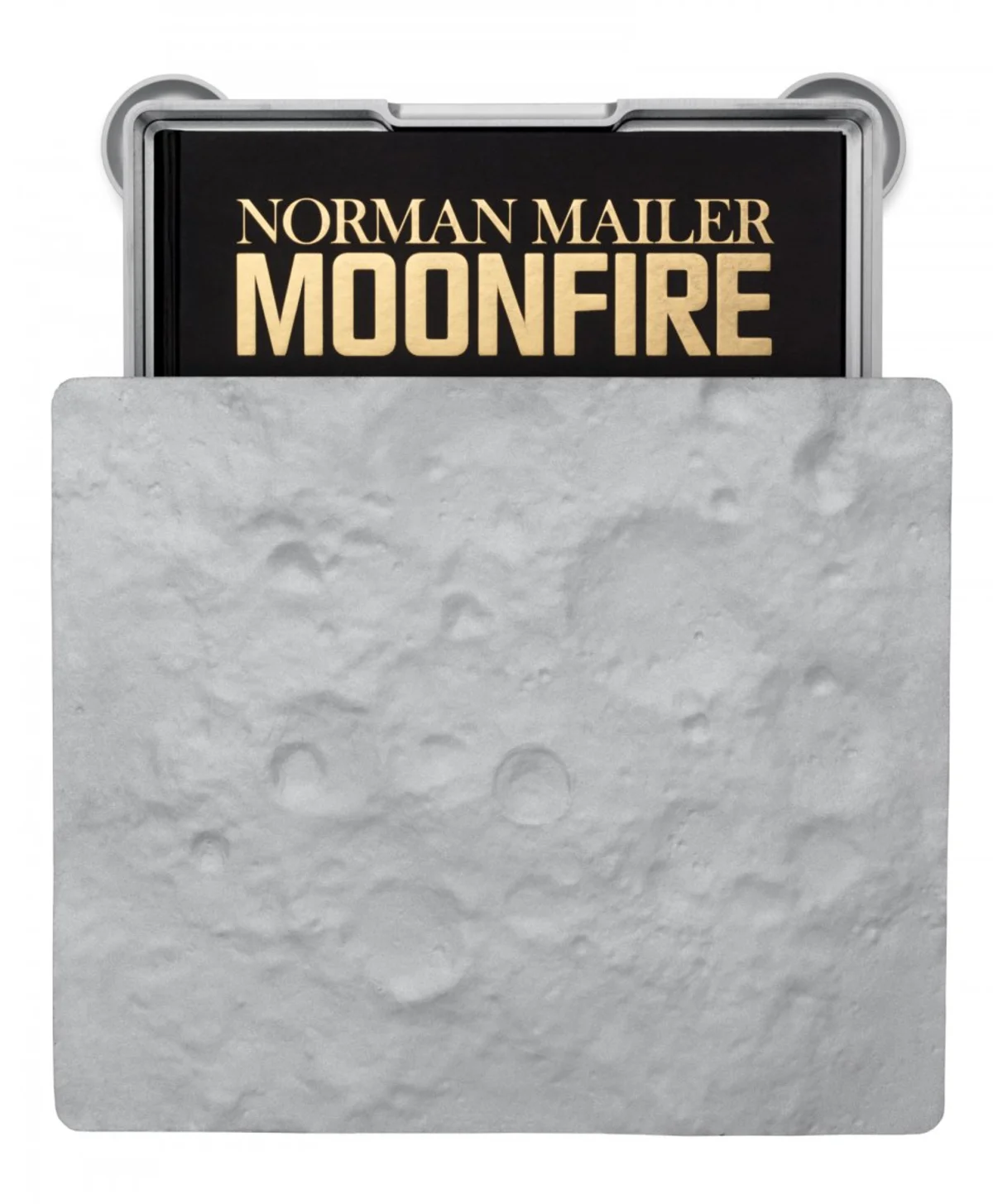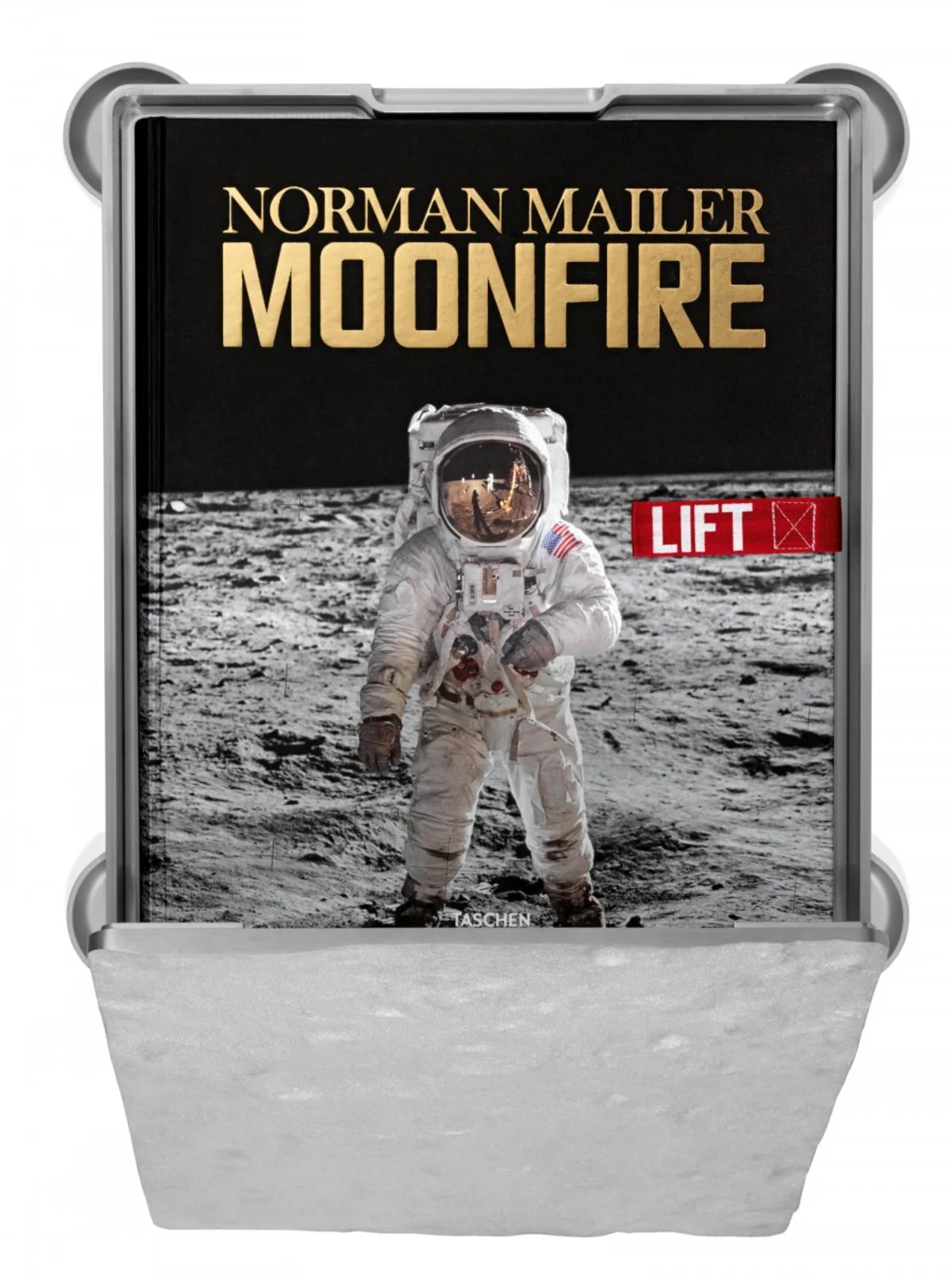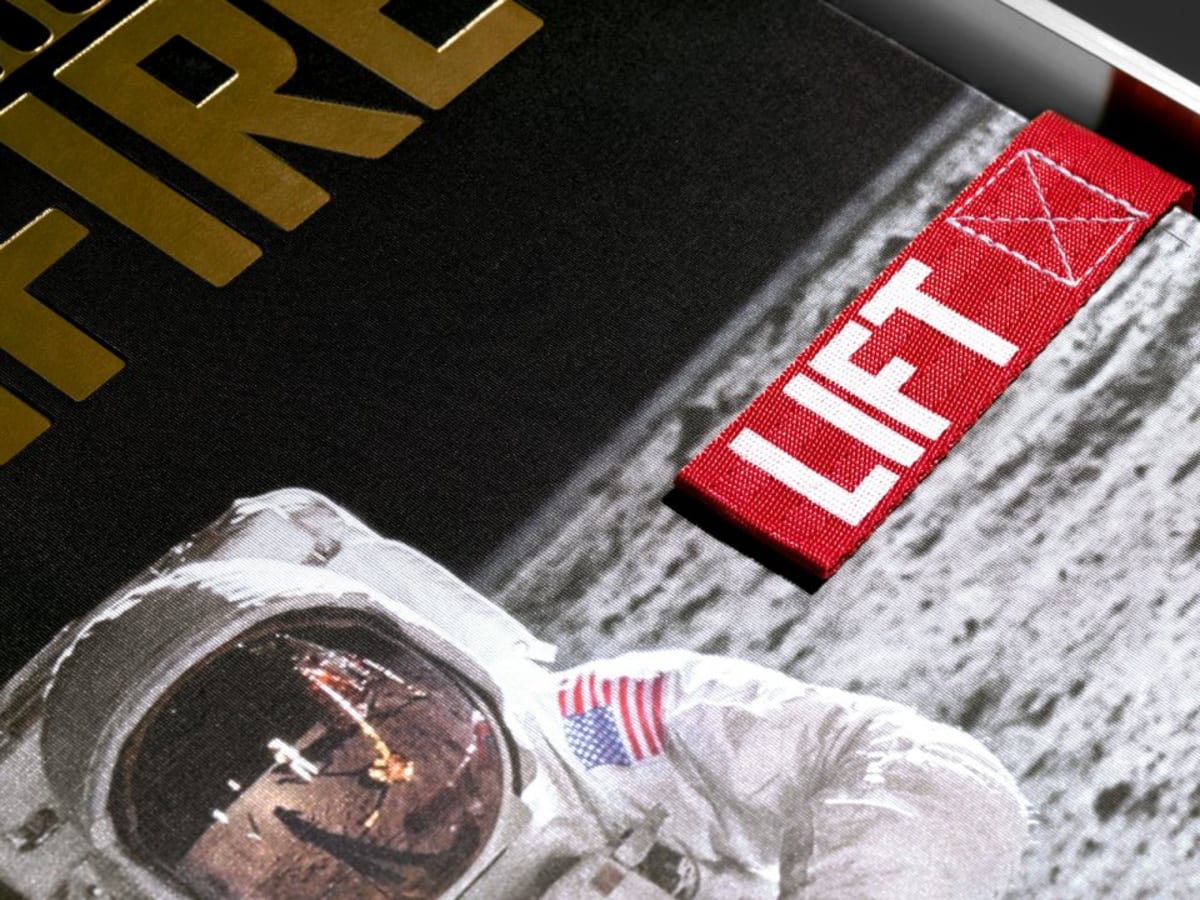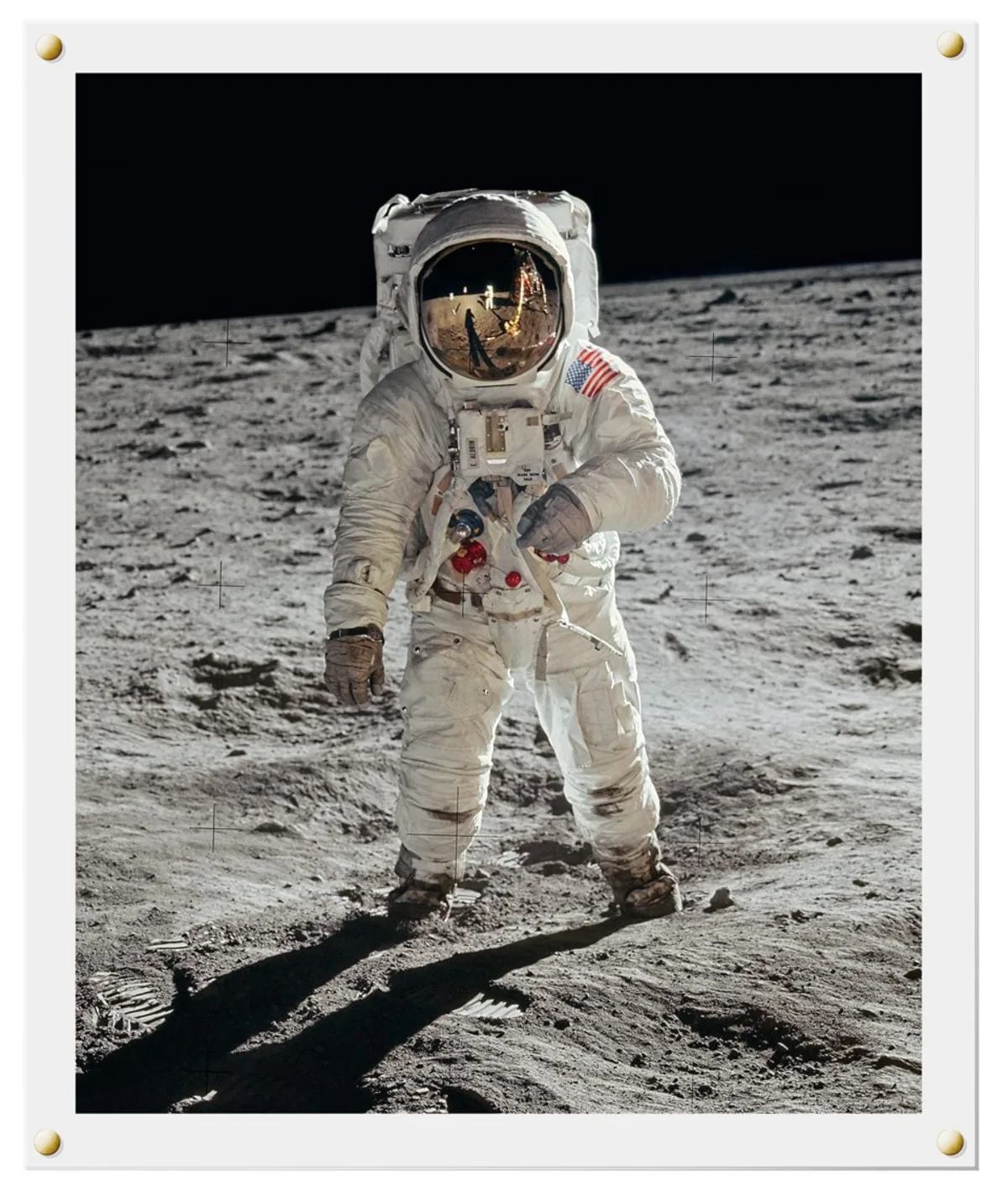1 / 26
XXL
XXL books are a minimum 39 cm (15.4 in.)
Norman Mailer, Marc Newson. MoonFire, Lunar Rock Edition No. 1,967 ‘NWA 5153’
Price on requestEdition: EnglishLimited to just 12 copies, one for each astronaut who walked on the Moon, the Lunar Rock Edition of Norman Mailer’s MoonFire is designed by Marc Newson. Each book is contained in a case inspired by the Apollo 11 LEM (Lunar Excursion Module)—its surface an actual 3-D topography of the Moon—and comes with a unique piece of lunar meteorite. Accompanying this edition is a Basalt-Bearing Mingled Feldspathic Breccia, fresh and solid, it is a rare main mass of a meteorite.
NWA 5153
Type: Basalt-Bearing Mingled Feldspathic Breccia
Discovery site: North West African corridor
near the Moroccan / Algerian border
Size: 38 x 27 x 23 mm
Weight: 41.88 grams
NWA 5153
Type: Basalt-Bearing Mingled Feldspathic Breccia
Discovery site: North West African corridor
near the Moroccan / Algerian border
Size: 38 x 27 x 23 mm
Weight: 41.88 grams
Price on request
For inquiries please contact collectors@taschen.com.UniqueAluminum case with lunar rock in capsule and framed print, 32.5 x 40 cm, hardcover volume, 36.5 x 44 cm with 4 fold-outs, 348 pages
XXL
XXL books are a minimum 39 cm (15.4 in.)

Norman Mailer, Marc Newson. MoonFire, Lunar Rock Edition No. 1,967 ‘NWA 5153’
Price on requestNo. 1,967
“MoonFire is the greatest book I have ever seen. The photography is unparalleled, it is more than just a book, it is an experience.” —David Schonauer, American Photo, New York
Limited to just 12 copies, numbered 1,958–1,969, the Lunar Rock Edition of Norman Mailer’s MoonFire is designed by Marc Newson. His concept was inspired by the Apollo 11 LEM (Lunar Excursion Module). Each book is contained in a case made from a single piece of aluminum—its surface an actual 3-D topography of the Moon—and comes with a unique piece of lunar rock.
Meteorites from the Moon are exceptionally rare. There are fewer than 100 lunar meteorites known with a total combined weight of approximately 725 kilograms, making them millions of times rarer than gem grade diamonds. However, most lunar meteorites reside in museum collections and research institutions, leaving only 150 kilograms or so available to individual collectors worldwide. Since acquiring an Apollo moon rock is virtually impossible, the only realistic way to own a piece of the moon is by acquiring a lunar meteorite.
NWA 5153
Type: Basalt-Bearing Mingled Feldspathic Breccia
Discovery site: North West African corridor
near the Moroccan / Algerian border
Size: 38 x 27 x 23 mm
Weight: 41.88 grams
A rare main mass of a lunar meteorite, this specimen features numerous lunar signatures: It’s a fragmental meltmatrix breccia that contains an assortment of lunar highland lithologies in addition to Mare basalts and glasses. Highland components include cataclastic gabbro and troctolite. Mare components includes ophitic pigeonite and olivine basalts. The specimen is extremely fresh and solid. The cut face of this meteorite exhibits a character of the finest brecciated Moon rocks. Several large anorthositic inclusions are also readily observed on both the obverse and reverse. This specimen is from the Macovich Collection of Meteorites—one of the most acclaimed private meteorite collections in the world. The Smithsonian, The Academy of Sciences in Moscow, The Natural History Museum (London), the Muséum National d’Histoire Naturelle (Paris) and the American Museum of Natural History (New York) all have specimens with a Macovich provenance.
Limited to just 12 copies, numbered 1,958–1,969, the Lunar Rock Edition of Norman Mailer’s MoonFire is designed by Marc Newson. His concept was inspired by the Apollo 11 LEM (Lunar Excursion Module). Each book is contained in a case made from a single piece of aluminum—its surface an actual 3-D topography of the Moon—and comes with a unique piece of lunar rock.
Meteorites from the Moon are exceptionally rare. There are fewer than 100 lunar meteorites known with a total combined weight of approximately 725 kilograms, making them millions of times rarer than gem grade diamonds. However, most lunar meteorites reside in museum collections and research institutions, leaving only 150 kilograms or so available to individual collectors worldwide. Since acquiring an Apollo moon rock is virtually impossible, the only realistic way to own a piece of the moon is by acquiring a lunar meteorite.
NWA 5153
Type: Basalt-Bearing Mingled Feldspathic Breccia
Discovery site: North West African corridor
near the Moroccan / Algerian border
Size: 38 x 27 x 23 mm
Weight: 41.88 grams
A rare main mass of a lunar meteorite, this specimen features numerous lunar signatures: It’s a fragmental meltmatrix breccia that contains an assortment of lunar highland lithologies in addition to Mare basalts and glasses. Highland components include cataclastic gabbro and troctolite. Mare components includes ophitic pigeonite and olivine basalts. The specimen is extremely fresh and solid. The cut face of this meteorite exhibits a character of the finest brecciated Moon rocks. Several large anorthositic inclusions are also readily observed on both the obverse and reverse. This specimen is from the Macovich Collection of Meteorites—one of the most acclaimed private meteorite collections in the world. The Smithsonian, The Academy of Sciences in Moscow, The Natural History Museum (London), the Muséum National d’Histoire Naturelle (Paris) and the American Museum of Natural History (New York) all have specimens with a Macovich provenance.
Norman Mailer, Marc Newson. MoonFire, Lunar Rock Edition No. 1,967 ‘NWA 5153’
UniqueAluminum case with lunar rock in capsule and framed print, 32.5 x 40 cm, hardcover volume, 36.5 x 44 cm with 4 fold-outs, 348 pagesISBN 978-3-8365-2195-6
Edition: EnglishDownload product images here
No reviews have been posted for this item yet. Be the first to rate this product.

